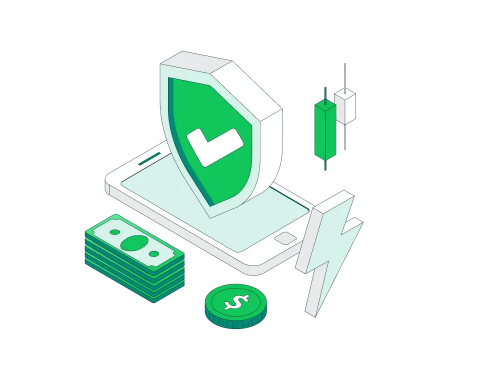The Different Aspects of CFD Trading: Whether or Not it is Suitable for You
CFD trading has now become the most preferred choice among individuals who want to exploit the price movement in an underlying asset without holding that asset. No matter whether you are thinking of entering into your first trade or adding to your investment portfolio, the pros and cons of Contracts for Difference (CFDs) are essential for better and informed decision-making.
So what is CFD trading
So before we head on to the pros and cons, we must first clear the meaning. A contract for difference is indeed a financial contract between you and a broker, agreeing to "exchange" the difference between the worth of an underlying asset from the time you open your position to the time you close it.
Pros of CFD trading-the alluring and attractive advantages
1. Ample High Leverage Opportunities
Perhaps the finest thing in CFD trading is leverage. CFD leverage explained essentially, means that you hold a very large position with only a little deposit. For instance, at 10:1 leverage, you can control a position worth $10,000 with a $1,000 investment. Such amplification can make your potential returns sky-high--but, as we will discuss later, this works both ways.
2. Go Long or Short with Equal Ease
CFDs offer freedom from the common limitation of profit by price rises when the market is up and gaining your profits while losing them when it goes down. Therefore, you can just as easily open a "sell" position along with a "buy" position, with the option of profit in a declining market-the main advantage that CFD trading has during periods of economic instability.
3. Access to Global Markets from One Platform
There is so much that CFD allows: Beyond just forex pairs, it encompasses stock indices, commodities, and cryptocurrencies-all of which enable you to trade through one account. That offer is really equal to many diversified opportunities and innovations, as well as portfolio diversification all in one account, using only one brokerage.
4. Lower Capital Requirements
Due to leverage CFD trading is way less costly than common investing, since only a small margin ne,eds to be deposited instead of the total value of the asset. Financial markets become much more accessible to aspiring traders with less capital through this opportunity.
5. No Ownership Complications
Trading in CFDs frees you from some of the responsibilities that would have otherwise accompanied actual ownership. CFD traders do not have to think about the costs of storage for commodities or stockholder responsibilities for shares. This eliminates most administrative headaches while keeping exposure to price movements.
CFD Trading Risks: The Major Disadvantages
Leverage can produce bigness of profits and losses. The same 10:1 leverage which converted a 5% positive market movement into a 50% account gain converts a 5% negative movement into a 50% loss. This amplification thus represents one of the most serious risks of trading within CFDs and explains why so many traders simply lose money.
Lehman Brothers (2008): Research consistently identifies excessive leverage as a key factor in the collapse of Lehman Brothers during the 2008 financial crisis. With a leverage ratio reported as high as 30:1 (and some estimates even higher), Lehman held an enormous amount of debt relative to its equity. This meant even a small decline in the value of its assets, particularly its large holdings of mortgage-backed securities, could wipe out its capital. As the housing market faltered, Lehman's highly leveraged position left it unable to absorb losses, triggering a liquidity crisis and ultimately bankruptcy, which had systemic global consequences.
Conclusion
Perhaps, CFD trading would be profitable; however, that mainly goes down to factors such as your situation, the level of knowledge you have, discipline, as well as the approach in managing risks. For example, if you have a fairly high risk appetite, good market awareness, prefer short-term time frames, have time for active monitoring as well as fairly good CFD trading approaches, these instruments would define trading.
Otherwise, for those traders who would have lower-risk strategies, looking for passive income, have a small capital base to risk, would not have time to analyse and prefer ownership rights, probably traditional investing would serve their purpose much better.
For more info:-

.png)
Comments
Post a Comment